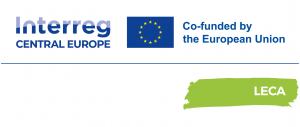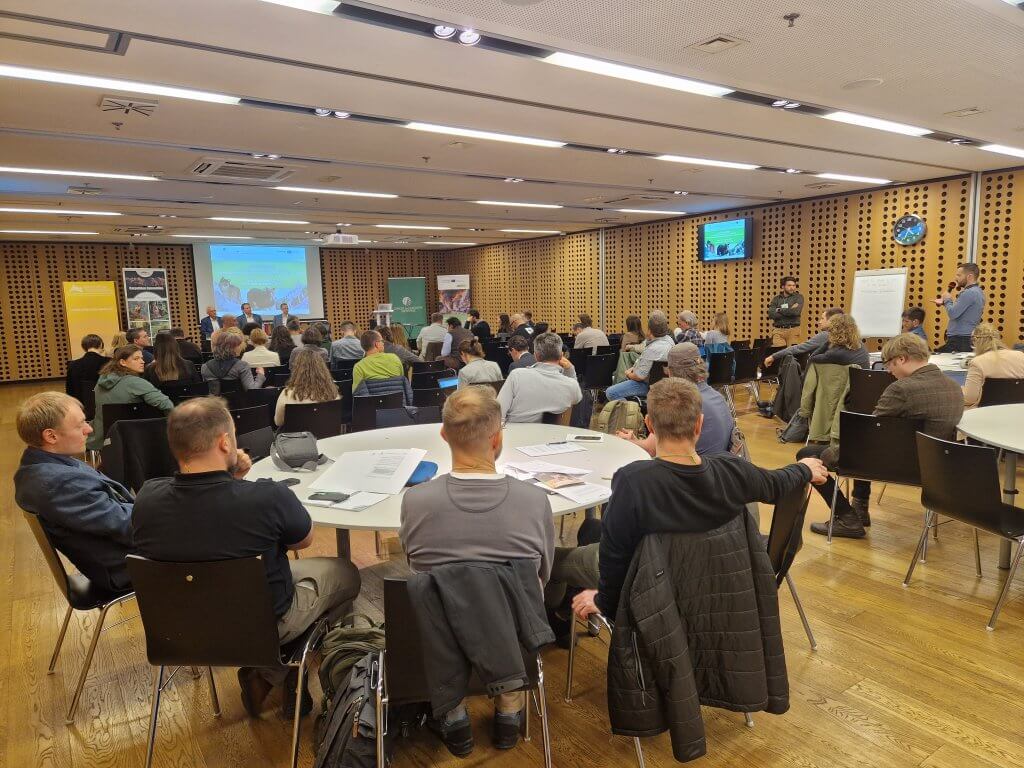For this purpose, an international conference focusing on large carnivore management took place in Slovenia between March 6 and 8, 2024. At the conference, representatives from 13 countries exchanged their experiences and solutions implemented within their countries. The conference was also a unique opportunity for policy experts to establish close cooperation in this field. The event was organised by Slovenia Forest Service in the scope of the Interreg Central Europe project LECA: Supporting the coexistence and conservation of Carpathian Large Carnivores. Both conventions, with support of the Slovenian Ministry of Natural Resources and Spatial Planning and the Ministry of the Environment of the Czech Republic, co-hosted the event.
The status of large carnivore populations, monitoring methods, spatial characteristics of their habitats, and the degree of interaction with humans and consequent conflicts vary between and within the countries and regions. “To this end, the conference aims to provide an overall picture of the status of large carnivore populations in the Alps and Carpathian Mountains,” explained Martin Duľa, coordinator of project LECA from Mendel University in Brno (Czech Republic). The LECA project goal is to produce guidelines on monitoring, conflict and poaching prevention of brown bear, grey wolf and Eurasian lynx. “This conference is the first event that aims to connect both the Alpine and Carpathian region with a view to share examples of good practice and discuss joint challenges,” added Eliška Rolfová, Chair of Carpathian Convention Working Group on Biodiversity, from the Ministry of the Environment of the Czech Republic.
The conservation of grey wolf, brown bear, and Eurasian lynx is subject to the same legal basis within the European Union, while policy practices in conservation management itself vary between countries. Rok Černe, Chair of Large Carnivores, Wild Ungulates and Society Working Group of the Alpine Convention from Slovenia Forest Service explains: “the conference focuses on exchanging experiences and revealing the differences in management practices at regional and national levels.” This established cooperation will contribute towards better understanding, and better conservation and management of large carnivores and associated societal challenges at the pan-European level.
Contact for further information: Martin Duľa, Department of Forest Ecology LDF MENDELU, +420 770 137 635, martin.dula@mendelu.cz


More news
-
Mendel University in Brno is hosting two events today focused on ongoing space research. SPACE NET MENDELU focuses on how to intelligently integrate current and future applications of space technologies into teaching and research practice. SPACE DAY…4. 3. 2026
-
The university is opening a new MENDELU SHOP in building X
Today, a new MENDELU SHOP is opening on the ground floor of Building X, where you can buy university merchandise such as sweatshirts and T-shirts. A new category of promotional items is the Green Choice collection, where visitors to the shop will…24. 2. 2026 -
Online laboratory tours and virtual autopsy tables. Teaching at MENDELU is…
The teaching of biological and biotechnological subjects at the Faculty of AgriSciences of MENDELU is expanding to include digital innovations. This was prompted by the prolonged distance learning during the pandemic, during which teachers had to…10. 2. 2026 -
Antioxidants in waste materials can be used in the food industry and for plant…
A research team from the Faculty of Horticulture is studying antioxidants in waste materials, especially in woody plants. Plant waste materials often contain higher amounts of certain antioxidants than common foods, and can be used both in the food…5. 2. 2026 -
A scientist from the Faculty of AgriSciences is in Antarctica. She is studying…
Scientist Stanislava Bezdíček Králová is participating in scientific expeditions to Antarctica for the first time under the auspices of the Faculty of AgriSciences at MENDELU. On the icy continent, she is investigating how local microorganisms…27. 1. 2026 -
Cooperation with the Multidisciplinary University of Jerusalem in Israel
The Department of Applied and Landscape Ecology has established an interdisciplinary cooperation with the Multidisciplinary University of Jerusalem in Israel. They designed a joint course was initiated and subsequently piloted during the winter…15. 1. 2026 -
The Faculty of Horticulture supports the production of proteins and anti-cancer…
A scientific team from the Faculty of Horticulture focuses on growing special crops – duckweed and common waterweed – in which they try to stimulate higher production of certain substances, thanks to which the raw material can be used for the…15. 1. 2026 -
MENDELU leads international project focused on the protection and conservation…
Mendel University in Brno is the main coordinator of an international project focused on the protection and conservation of narrow-leaved ash (Fraxinus angustifolia), a key tree species in the floodplain forests of Central and Southern Europe.…18. 12. 2025 -
MENDELU coordinates activities for biodiversity conservation and sustainable…
The Faculty of AgriSciences and the Faculty of Forestry and Wood Technology at MENDELU are coordinating an international project in the Amazon that contributes to biodiversity conservation, sustainable management, and improving quality of life. This…16. 12. 2025 -
MENDELU launches High School University, applications open today
At the beginning of 2026, Mendel University in Brno will launch the first year of its High School University for second- and third-year high school students. The aim is to give twenty-five high school students a glimpse into the university…8. 12. 2025